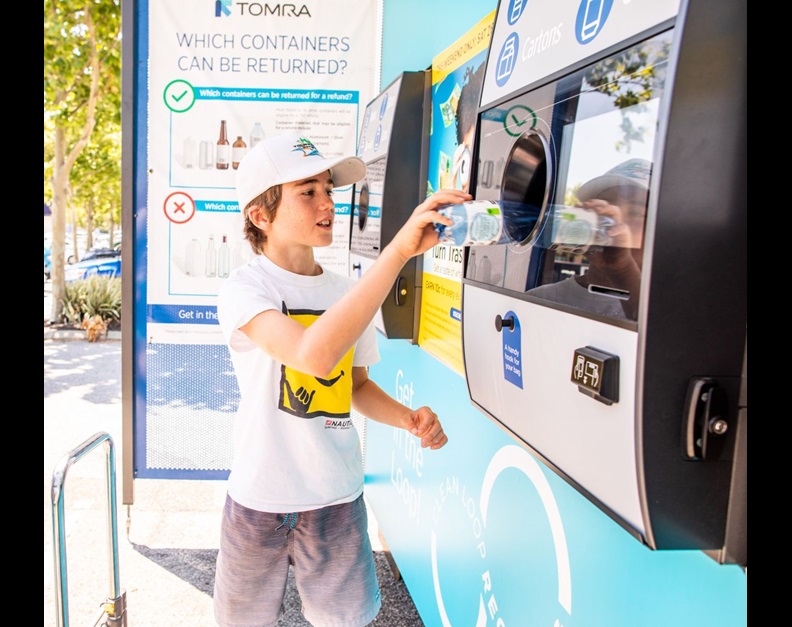Victorian DRS best practice
TOMRA congratulates the Victorian Government on its commitment to a modern, high-performing and convenient container deposit scheme (CDS).

By endorsing a split-responsibility model, Minister D’Ambrosio and the Andrews Government have signaled a clear intention to deliver a world-class CDS for the people of Victoria.
Ryan Buzzell, President of TOMRA Collection Solutions Pacific, said: “A split responsibility CDS with an independent network operator is a proven way of boosting recycling, reducing litter and creating hundreds of new jobs in the circular economy.”
“What’s more, we’ve seen how this scheme design creates tremendous fundraising opportunities for hundreds of charities, community groups and sporting clubs.” The split responsibility model Victoria has put forward ensures that collection points are designed and managed by an independent network operator (or operators) incentivised to achieve the highest return rates possible, meaning consumers can more easily return their containers for recycling, more material is reprocessed, and less litter ends up in landfill or oceans and waterways.
A network operator incentivized to service every part of the state will also bring important jobs to communities right across Victoria and enable fundraising opportunities for sporting clubs, community groups and charities big and small.
TOMRA is a global leader in recycling and sorting technology and has a presence in 40 CDS jurisdictions around the world. The company's reverse vending machines (RVMs), co-located with retail, are a key feature of many high-performing schemes. TOMRA also provides industrial-scale technology for depots and reprocessors. “The split responsibility design drives high return rates by prioritizing convenience for consumers, which is absolutely fundamental,” says Markus Fraval, TOMRA’s Head of Business Development.
“A good collection network deploys a variety of complementary types of return point infrastructure to serve different customer types and demographics, including high-volume depots and smaller over-the-counter or bag-drop refund points.”
“Importantly, the best-performing systems around the world work with retail locations to make recycling part of people’s everyday routine. Placing RVMs in shopping centres or supermarket carparks provides a foundation for these schemes and means that instead of having to make a separate, dedicated trip to an out-of-the-way depot to return your containers, you can simply drop off your empty bottles and cans on your way into the shops.”
Fraval says: “Today’s decision demonstrates that the Victorian Government wants a scheme that makes it easy for all Victorians to return their containers and collect or donate their refund.”
Today is a hugely important step toward Victoria implementing a best-practice CDS. TOMRA is looking forward to working constructively with all stakeholders and engaging further with the design process.
